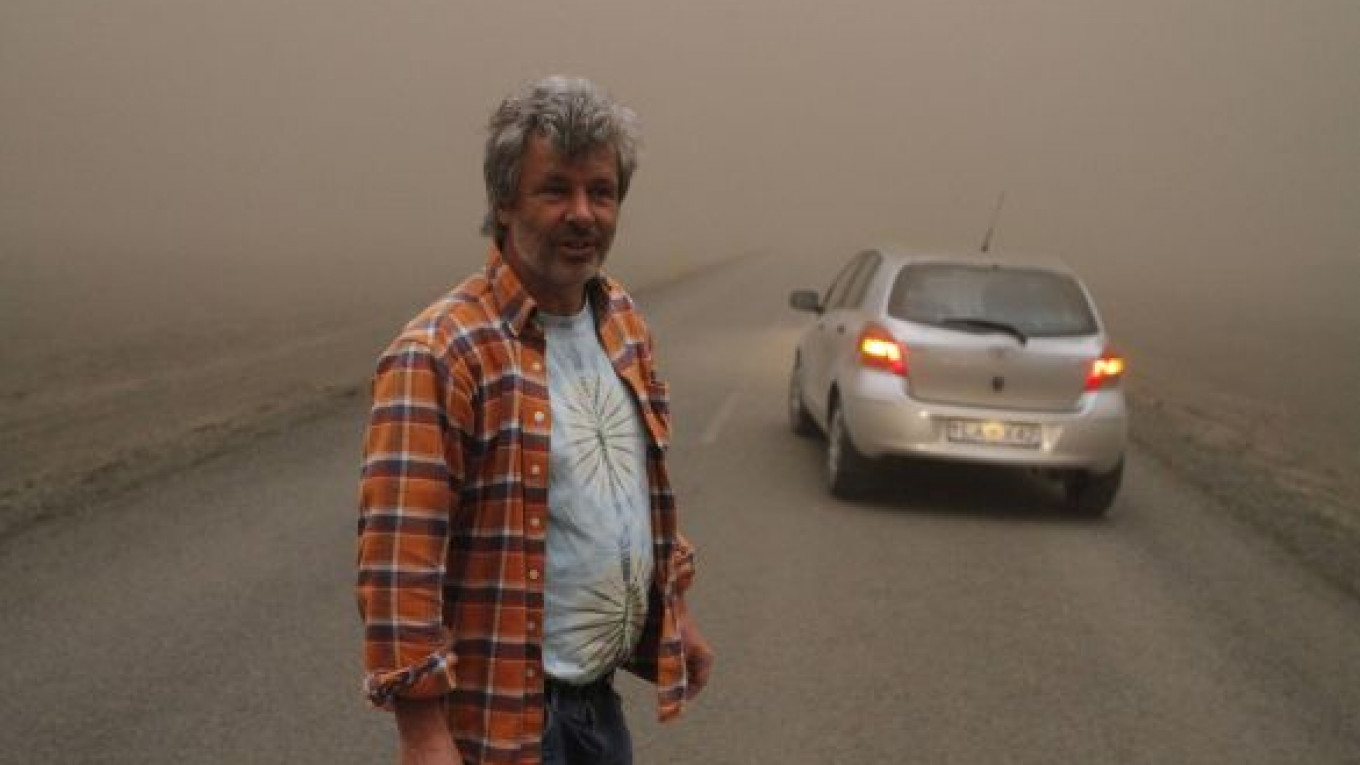West-bound flights from Moscow flew largely on schedule Tuesday, with the exception of several slightly late arrivals on trans-Atlantic flights that flew around a growing ash cloud spewed by Iceland's Grimsvotn volcano.
Anxiety lingered as the ash drifted toward continental Europe, but a Russian weather expert said the volcano was unlikely to cause a disruption on par with last year's Eyjafjallajokull eruption that stranded passengers for days.
A spokeswoman for Sheremetyevo Airport said all flights were on time. Domodedovo Airport recommended that passengers check for delays with their airline.
Delta Air Lines, the world's largest airline with daily flights to New York and Atlanta, showed late arrivals on both sides of the Atlantic on its web site. Its New York-Moscow flight landed 40 minutes late Tuesday, and a Delta site map tracking the flight showed that the plane had detoured far south of its customary route over Iceland and Greenland to avoid the ash.
The Moscow-New York flight landed 45 minutes late on Monday and was expected to arrive 90 minutes late after a departure that was delayed by 20 minutes Tuesday.
But a spokeswomen at Delta's British office insisted that Moscow flights were unaffected by the volcano.
The volcano grounded more than 250 flights in Western Europe on Tuesday, primarily between London and airports in Scotland. Checks of the air above Scotland found a high concentration of volcanic ash, which has the potential to shut down jet engines. Iceland has closed all its airports since Grimsvotn started erupting late Saturday.
The ash cloud is unlikely to reach Russia and will not pose a danger for the population if it does, the federal weather bureau said on its web site.
"There is no serious threat because Grimsvotn's ash is heavier than that of Eyjafjallajokull and falls to the ground faster," weather bureau expert Alexander Golybev said by telephone. "We are optimistic about the outcome."
The eruption of Eyjafjallajokull in April 2010 caused a weeklong closure of airspace across Europe and cost the air transportation industry an estimated $2 billion.
More than 450 flights by Russian airlines were also affected, though total industry losses remain unclear. Aeroflot did not disclose its losses, while Transaero said delays cost it about 20 million rubles ($700,000).
The Russian tourist industry, still reeling from a weeks-long ban on Egypt travel over an uprising in the country this spring, has not suffered any losses over Grimsvotn but is on edge.
"The situation has not yet touched Russian tourism abroad, and flights are proceeding as planned," Russian Tourism Industry spokeswoman Irina Tyurina said by telephone.
She added, however, that tourist operators "feel a little scared because no one wants a repeat of last year's situation."
A representative of a Moscow-based travel agency specializing in European tours confirmed that no tours had been canceled.
"But I can say nothing about the future," said the representative, who asked not to be identified because she was not authorized to talk to the media. The agency would have to reimburse any clients whose flights were grounded by the eruption, she said.
Alex Chachkevitch contributed to this article.
A Message from The Moscow Times:
Dear readers,
We are facing unprecedented challenges. Russia's Prosecutor General's Office has designated The Moscow Times as an "undesirable" organization, criminalizing our work and putting our staff at risk of prosecution. This follows our earlier unjust labeling as a "foreign agent."
These actions are direct attempts to silence independent journalism in Russia. The authorities claim our work "discredits the decisions of the Russian leadership." We see things differently: we strive to provide accurate, unbiased reporting on Russia.
We, the journalists of The Moscow Times, refuse to be silenced. But to continue our work, we need your help.
Your support, no matter how small, makes a world of difference. If you can, please support us monthly starting from just $2. It's quick to set up, and every contribution makes a significant impact.
By supporting The Moscow Times, you're defending open, independent journalism in the face of repression. Thank you for standing with us.
Remind me later.






